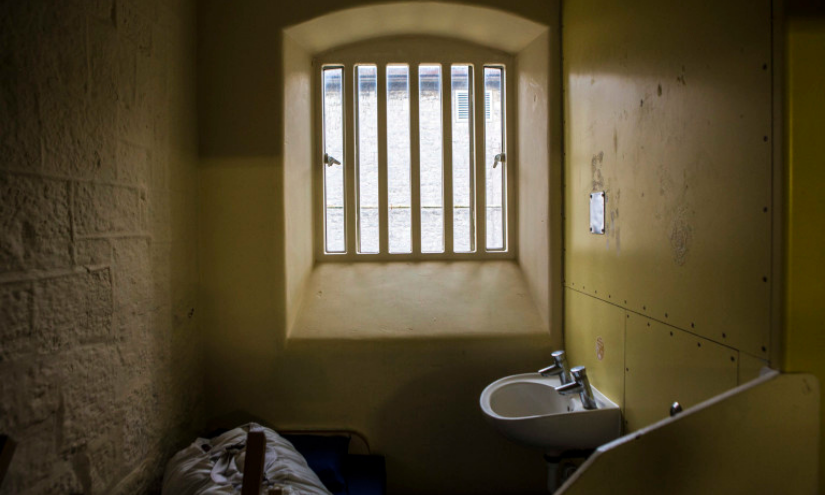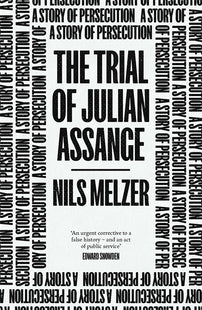Enemy, traitor, terrorist or inconvenient truth-teller?
Nils Melzer on how the West’s persecution of political dissidents reveals fundamental hypocrisies in applications of human rights law within the international community.

For me personally, 2019 and 2020 had been years of disillusion and resolve. The disillusion concerned the credibility of Western democracies as allies in the fight for human rights; the reliability of our constitutional checks and balances to oversee the exercise of governmental power; and the practical effectiveness of UN mechanisms in protecting human rights. But this loss of illusions also gave me the resolve to put myself on the line and confront the international community of states with its hypocrisy. The same international community that had appointed me as a UN special rapporteur in 2016, when as a senior security policy advisor to the Swiss government I was still very much part of the system. I had taken my mandate literally, had exposed torture and ill-treatment wherever I encountered it in my work and had refused to bend the rules for reasons of personal or political expediency. Now, with my investigation into the case of Julian Assange, I had inadvertently become a dissident within the system myself.
Nothing illustrated this transformation more emblematically than my brief public address on 27 November 2019, at the Brandenburg Gate in Berlin. On Pariser Platz stood a sculpture by the Italian artist Davide Dormino. Cast in bronze, Edward Snowden, Julian Assange and Chelsea Manning stood on three chairs, silent and upright. Unbowed. Next to them was a fourth chair, empty, inviting people to step up and take a stand. Very appropriately, Dormino had titled the sculpture ‘Anything to say?’ Several politicians had already taken the floor at a lectern next to it. As I listened to them, the fourth chair of the sculpture looked glaringly abandoned. So, when it was my turn to speak and I was handed the microphone, I did not hesitate but stepped up onto the fourth chair. From up there I looked across the square, the huge US embassy to my right, and felt as if I were doing something forbidden. I was aware that I had crossed another line with this symbolic gesture that physically placed me in line with the three most persecuted dissidents of the Western world. It was not that I had overstepped my mandate. On the contrary, given the refusal of the involved governments to cooperate with my office, this really was the only way I could still exercise my mandate with independence and effectiveness. If I could no longer rely on the governments currently in place to live up to their international obligations, I had to directly address the people of the UN member states, because it was they who were the ultimate sovereign and had collectively committed to respecting and protecting fundamental human rights at all times. If my mandate was not to degenerate into a fig leaf for a dysfunctional system of self-deception, I could not be intimidated, but had to speak truth to power – not only with words, but whenever possible also with powerful symbolic gestures.
This is what I had to say:
‘For decades, political dissidents have been welcomed by the West with open arms, because in their fight for human rights they were persecuted by dictatorial regimes. Today, however, Western dissidents themselves are forced to seek asylum elsewhere, such as Edward Snowden in Russia or, until recently, Julian Assange at the Ecuadorian embassy in London. For the West itself has begun to persecute its own dissidents, to subject them to draconian punishments in political show trials, and to imprison them as dangerous terrorists in high-security prisons under conditions that can only be described as inhuman and degrading.
‘Our governments feel threatened by Chelsea Manning, Edward Snowden, and Julian Assange, because they are whistleblowers, journalists, and human rights activists who have provided solid evidence for the abuse, corruption, and war crimes of the powerful, for which they are now being systematically defamed and persecuted. They are the political dissidents of the West, and their persecution is today’s witch-hunt, because they threaten the privileges of an unconstrained state power that has gone out of control.
‘The cases of Manning, Snowden, Assange and others are the most important test of our time for the credibility of Western rule of law and democracy and our commitment to human rights. In all these cases, it is not about the person, the character or possible misconduct of these dissidents, but about how our governments deal with revelations about their own misconduct.
‘How many soldiers have been held accountable for the massacre of civilians shown in the video “Collateral Murder”? How many agents for the systematic torture of terror suspects? How many politicians and CEOs for the corrupt and inhumane machinations that have been brought to light by our dissidents? That’s what this is about. It is about the integrity of the rule of law, the credibility of our democracies and, ultimately, about our own human dignity and the future of our children. Let us never forget that!’
The sculpture subsequently toured Europe and, almost exactly eighteen months later, I once again stood on that bronze chair on the occasion of the ‘Geneva Call to Free Assange’ launched by the Swiss Press Club on 4 and 5 June 2021. Julian Assange was still isolated in Belmarsh, and his extradition trial had reached the appeal stage in the British High Court, but public opinion had evolved since that first speech in Berlin. By my side were not only Assange’s partner Stella Moris and many other long-time supporters of Assange, but also Yves Daccord, a former director- general of the ICRC, Christophe Deloire, the secretary-general of Reporters without Borders, Carlo Sommaruga, member of the Swiss Federal Parliament, and even the mayor of Geneva, Frédérique Perler, who powerfully proclaimed that ‘Assange has sacrificed his liberty in order to protect ours!’
Six months earlier, on 4 January 2021, a lower court in Britain had already set a legal precedent effectively criminalizing investigative journalism worldwide, and Assange’s state of health was declining. So, when I stepped up on that fourth chair for the second time in June 2021, just a stone’s throw away from the majestic Palais Wilson that hosts the Office of the High Commissioner for Human Rights, I spoke with an increased sense of urgency:
‘Ladies and Gentlemen, we are in Geneva. It is the city of the United Nations, the city of the Red Cross, and it is the city of human rights. I am standing here next to Edward Snowden, Julian Assange and Chelsea Manning. The truth is: all of them are being persecuted, mistreated and demonized for one thing and one thing only; for having told the truth, the whole truth and nothing but the truth about the misconduct of Western democracies. They are the skeletons in the closet of the West.
'Their persecution and mistreatment is what destroys the credibility of the West. When the Western governments today protest the persecution of Alexei Navalny and of Roman Protasevich, the responsible governments only laugh and ask, “Well, what about Edward Snowden who is being protected in Russia? What about Julian Assange, who is in solitary confinement without having committed a crime but telling the truth? What about Chelsea Manning, who was being persecuted to the point of almost dying in an attempted suicide?”
‘Whistleblowers and journalists who publish such information are inconvenient truthtellers. They are as inconvenient as the fire alarm in your house. When a fire goes off in your house and there is smoke, you hear the alarm. We all know the drill: we have to leave the house, we have to leave our work, our daily routine. It is inconvenient, and many voices come up and say: “Just switch off the alarm.” That is what these governments are trying to do when they persecute and isolate and silence these people. They are silencing the fire alarm in the building of democracy and the rule of law. And if I stand up here on this chair today, it is because I was the fire alarm in the United Nations for this case. And I rang the alarm bell, and I wrote to these governments, and I informed the public, but they wanted to ignore the alarm. No one reacted. So, we are inconvenient truthtellers, the four of us and the millions of others out there that speak the truth. Inconvenient truths. You can switch off the fire alarm for now, and you will feel comfortable for a couple more moments. But the next time you open your eyes, and you wake up and look around, the whole building will be on fire! It is now in the hands of the public to react. Thank you, Geneva, for hosting us here, thank you for giving us this platform. I know this voice goes out to the world!’
- The above is an extract from The Trial of Julian Assange, A Story of Persecution by Nils Melzer.
[book-strip index="1" style="buy"]